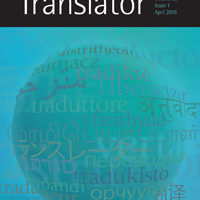The prefigurative politics of translation in place-based movements of protest

Subtitling in the Egyptian Revolution DOI: 10.1080/13556509.2016.1148438 (link to prepublication version at end of post) Mona Baker, The Translator, Volume 22, Number 1, 2016, pages 1-21 Abstract The idea of prefiguration is widely assumed to derive from anarchist discourse; it involves experimenting with currently available means in such a way that they come to mirror or actualise the political ideals that
» Read more